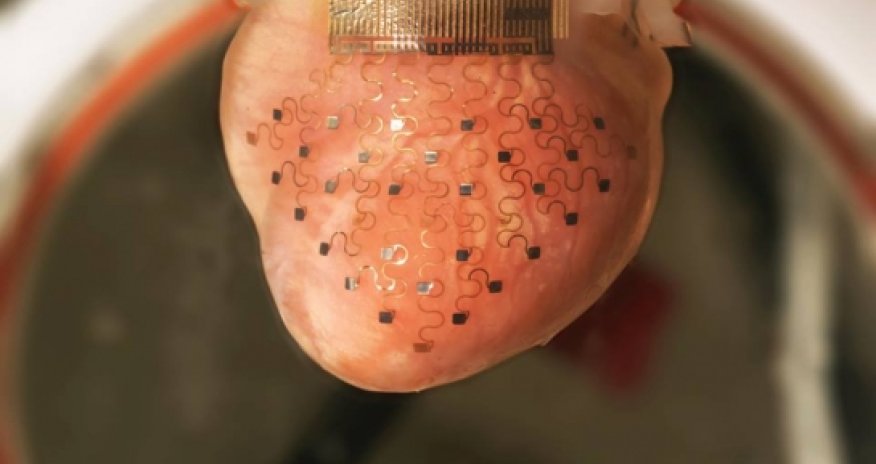Electronic sleeve that fits over your heart to keep it beating for ever

The device uses a “spider-web-like network of sensors and electrodes” to continuously monitor the heart’s electrical activity and could, in the future, deliver electrical shocks to maintain a healthy heart-rate.Researchers from the University of Illinois at Urbana-Champaign and Washington University in St. Louis used computer modelling technology and a 3D-printer to create a prototype membrane and fit it to a rabbit’s heart, keeping the organ operating perfectly “outside of the body in a nutrient and oxygen-rich solution”.The use of high-resolution imaging technology means that unlike current pacemaker and implantable defibrillator technology, the thin, elastic membrane will be custom-made to fit “snugly” over the real heart."When it senses such a catastrophic event as a heart attack or arrhythmia, it can also apply a high definition therapy,” said biomedical engineer Igor Efimov of Washington University, who helped design and test the device.“It can apply stimuli, electrical stimuli, from different locations on the device in an optimal fashion to stop this arrhythmia and prevent sudden cardiac death,” Efimov told local radio station KWMU-1.‘Cardiac socks’ of a similar design have been around since the 1980s but have previously been crude, fabric sleeves with electrodes sewn into place. This makes keeping the sensors in full contact with that famously restive organ the heart extremely difficult, if not impossible.The innovation in this new device is the use of stretchable electronics developed by John Rogers, a materials scientists from the University of Illinois.Although Rogers' electronics use the same rigid materials found in normal electronics (eg silicon), the circuits are laid out in curved, s-shaped design that allows them to stretch and bend without breaking.Rogers himself compared the silicon sleeve to the pericardium, the heart’s own membrane, telling KWMU-1 that “this artificial pericardium is instrumented with high quality, man-made devices that can sense and interact with the heart in different ways that are relevant to clinical cardiology.”Although immediate use for the device will be as a research tool allowing scientists to study how heart rate changes in response to different conditions in the future, electronic membranes of this sort could become common, monitoring at-risk individuals and safeguarding them from heart attacks.(independent.co.uk)ANN.Az




































 Photo
Photo 



 Video
Video 

